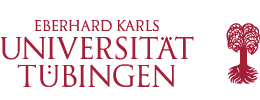Exam FAQ (Ulrike von Luxburg)
Question: For some reason I could not participate/failed in the written exam, can I now have an oral exam instead?
Answer: very likely, no! In particular, I never admit students to an oral exam who deliberately decided not take part in written exams and then realize all of a sudden that they urgently need to finish the module right now. Those students simply have to take the next written exam, and if this only happens a year later, then I cannot help it.Tthere are rare cases where an oral exam is admitted, though (for example in case of health issues). If you think that your case might be such an exception, please send me an email in which you describe the situation. In particular, please provide all of the following data: Your Name, which program you are enrolled in and for which degree (BSc or MSc), your matrikulation number, when did you attend the lecture and get the admission to the exam, which exam attempts did you already make and when, and if applicable, which aspect of your degree are still missing (how many lecture credit points, master thesis,...).
Question: I passed the exam, but I am not happy with the outcome. Can I take it again to improve my grade?
Answer: no, without any exceptions!!! Once you passed an exam, you cannot retake it to improve your score. In written exams you have one (somewhat risky) exit strategy: If you realize during the exam that you perform sub-optimally and would like to give it another try, you can make that exam invalid by crossing out everything you wrote. Obviously you need to do this right at the end of the written exam, before you hand in your solutions. Note that this means that you fail the current attempt.How to prepare for an oral exam
In case you get admitted to an oral exam, here are some tips about how to prepare.- Formalities: Please figure out whether / how you have to register for the exam. Please bring your student ID and passport with you. The exam typically lasts 25 min, there will be you and two examiners (me and a PhD student).You will not be allowed to bring any material, so you need to memorize everything. When all of us are in the room, we start asking questions (you do not get the questions in advance). We ask about the material of the lectures, not so much about the exercises or actual implementations. We would rather not let you perform complicated calculations, but we might ask for simple ones.
- Typical questions: We typically start asking simple questions about basic understanding and reproducing of the material. If you can answer all such questions, you will pass. Depending on your skill, we then ask questions about applying the material and transferring your knowledge to new situations. If you are a very good student, we also ask for the proof ideas of the main results in the lecture (this is relevant if you want to get the best mark).
- Practice the oral exam. First practice for yourself (put away all material, take an empty piece of paper, ask yourself the typical questions and try to answer them quickly and precisely). Then ask some fellow students to simulate a test exam.
- For each course it is pretty clear what the most important topics are. Make sure you can answer basic questions to all of them (if you do not have an answer to "what is an SVM" in a machine learning exam or to "what is depth first search" in an algorithms class, you are in trouble).
- If you did not manage to study all the material, then you might want to tell us in advance. We then discount the mark for that, but can concentrate on the material you are confident with. It is better to have parts of the material prepared very well rather than all of the material very badly.
- Of course we want to see that your answers are correct, but timing also matters. For a very good performance, your answers need to come reasonably quickly. If you need to think for a long time, then we cannot cover a lot of material. If your answers are so slow that we could not cover a certain minimal number of questions, we will discount the mark (similarly as in a written exam, where you get discounted if you do not solve all questions).

